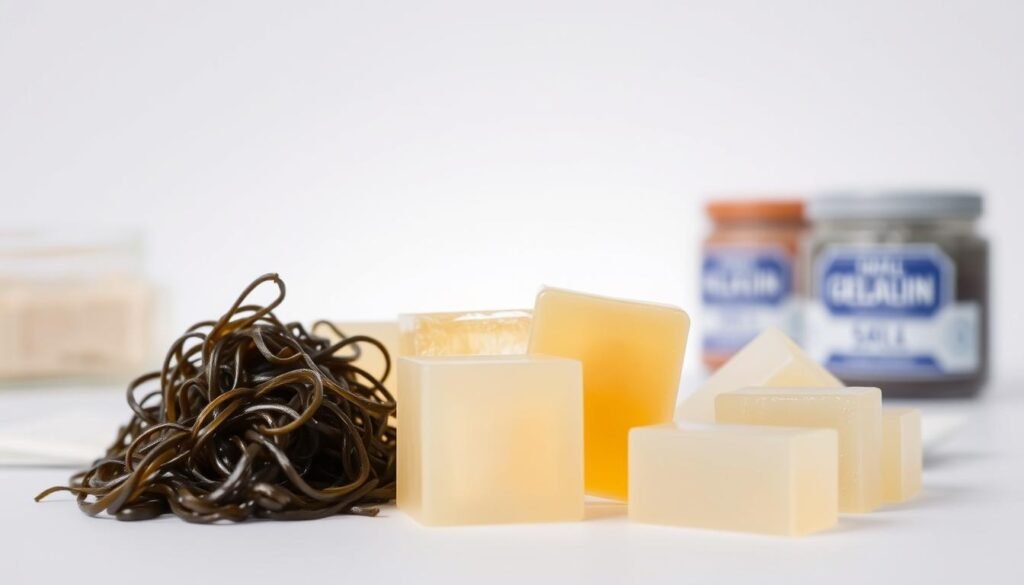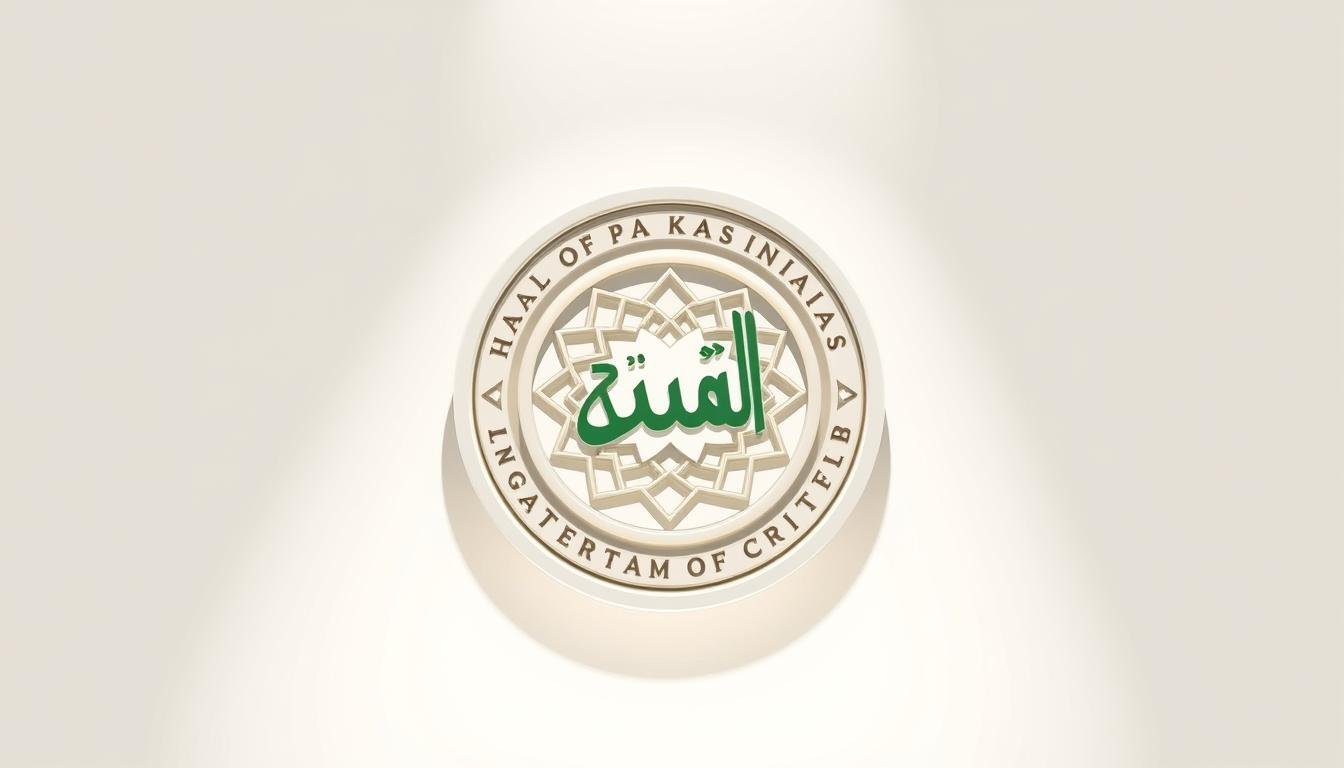Ever stood in a grocery aisle, unsure about ingredients? I have, trying to figure out if something is okay. For 1.8 billion Muslims, making these choices is part of daily life. They follow Islamic dietary laws, which say foods are either halal (allowed) or haram (forbidden).
These rules are not just spiritual. They’re a $2.6 trillion industry by 2024. They shape how we eat and trade.
Islamic food rules aren’t random. They come from verses like Surah 2:173, which bans pork and blood. And Surah 5:90, which says no to alcohol. But even careful Muslims sometimes get confused—10% of us doubt some foods.
In South Africa, SANHA certifies 90% of chicken as halal. In Singapore, MUIS checks over 1,500 places. These efforts help us make choices, but hidden additives can be a problem.
Why does this matter beyond faith? Halal standards affect global markets. They influence everything from U.S. processed foods to Malaysia’s 50% halal eateries. For non-Muslims, understanding these rules shows respect. For us, it’s about honoring a tradition that connects ethics, health, and spirituality.
Understanding Islamic Dietary Laws: The Foundation of Halal and Haram
Islamic dietary laws guide over 2 billion Muslims. They are based on the Quran and the Prophet’s teachings. These laws help food choices reflect faith and health.
For American Muslims, these laws shape their food choices. They influence what they buy at the grocery store and where they eat. The number of halal-certified products has tripled in the last 40 years.
The Quranic Basis for Food Restrictions
Key Quranic verses like Surah Al-Baqarah 2:173 and Surah Al-Ma’idah 5:3 list forbidden foods. These verses teach halal food guidelines and the importance of ethical eating. They encourage food that is not only allowed but also pure and wholesome.
How Dietary Laws Connect to Islamic Faith
These rules are spiritual practices that help Muslims grow in faith. They teach discipline and build community. The Halal Foundation has helped keep these traditions alive for decades.
Fasting during Ramadan teaches self-control. Eating mindfully during suhur helps keep energy up. These practices show how old wisdom meets modern life.
Pork and Pork Derivatives: The Most Well-Known Prohibition
The pork prohibition in Islam is at the heart of Islamic dietary laws. The Quran clearly says pork is forbidden. It calls it an “impure” food that Muslims must avoid (Quran 2:173).
This rule goes beyond just meat. It also includes gelatin, enzymes, and additives made from pigs.
“He has only forbidden to you dead animals, blood, the flesh of swine, and that which has been dedicated to other than Allah.” – Quran 2:173
So, why is pork seen as impure? Scholars look at both religious and practical reasons. The Quran talks about spiritual purity.
Historically, pigs were seen as dirty because they ate almost anything. Today, Muslims around the world avoid pork and its products. Even hidden forms are off-limits.
For example, gelatin in candies or marshmallows might come from pigs. This means checking labels is very important.
Many foods Muslims can’t eat are common in daily life. This includes some cheeses and bakery goods. In the U.S., where people eat about 50 pounds of pork each year, it’s hard for Muslims to follow these rules.
But, there are solutions. Halal-certified gelatin from fish or microbes is available. This shows the demand for clear and compliant food choices.
The global halal market is growing fast. It’s expected to reach $2.5 trillion by 2024. This growth shows how important it is for Muslims to have food that fits their beliefs.
As we deal with today’s food systems, staying alert is essential. “Do you know what’s in your snack bar?” is a question that helps raise awareness. It’s about knowing what’s in our food, from snacks to medicines.
Alcohol and Intoxicants: Beyond Just Drinking
In Islamic teachings, alcohol is strictly forbidden. The Quran says it’s a grave sin and leads to evil (Quran 5:90). This rule applies to all products with alcohol, making them haram foods in Islam. Even small amounts are forbidden, as the Prophet Muhammad taught.
“They ask you about intoxicants and gambling. Say: In them is great sin and [some] benefit for people. But their sin is greater than their benefit.” (Quran 2:219)
This verse shows Islam’s focus on avoiding harm. The Quran slowly banned alcohol, showing a careful approach. Today, alcohol can be found in unexpected places like vanilla extract. I always check labels for ethanol or wine vinegar when shopping.
There are debates about alcohol-free beer. Some say it’s okay if it doesn’t make you drunk. Others think it’s too close to alcohol. Cooking with alcohol-based ingredients also raises questions. Does cooking it make it okay to eat?
Intoxicants in things like perfumes are okay if used on the skin, not for getting drunk. This rule is based on old Islamic laws. Keeping to these rules needs knowledge and support from others.
Living a modern life while following Islamic teachings is a challenge. The Quran warns us about intoxicants. It reminds us to stay morally clear for our spiritual health.
Blood and Blood Products: Why They’re Forbidden
Islamic food rules say no to blood. This rule comes from the Quran, which calls it a forbidden food for Muslims. It’s about keeping things pure and healthy. Blood can carry harmful germs, which the Quran warns against.

“The Islamic emphasis on draining blood from meat reflects both spiritual concerns and what we now understand as hygienic practices.”
The Spiritual Significance of Blood in Islam
The Quran says blood is not allowed, calling it haram. It’s not just a rule—it’s about respecting life. By not eating blood, Muslims show they value life and follow ethical ways of killing animals.
Foods That May Contain Blood
Some foods to watch out for include blood sausages and certain Asian desserts. Also, meat products with additives might have blood. Look for halal logos to make sure these foods are okay.
Even a little bit of blood is not allowed. This is why it’s important to be careful. For more on this, check out this link.
Today, making food without blood is harder. But, halal labels help. They check for things like gelatin and emulsifiers. As more places sell halal food, knowing about blood in food becomes more important. This rule is about being true to faith and keeping healthy.
Comprehensive List of Foods Muslims Can’t Eat According to Islamic Law
Learning about haram foods in Islam goes beyond just knowing what not to eat. It’s about how animals are slaughtered. If an animal isn’t killed with the right words, its meat is not allowed. This rule affects the $20 billion U.S. halal market, which needs groups like HFA and HMC to check if food is okay.
Meat from Animals Not Slaughtered According to Islamic Guidelines
Meat must be cut quickly and with the name of Allah. If it’s not, it’s haram, even if the animal is okay. This rule is the same everywhere, but some places have different rules. For example, some in Europe think kosher meat is halal, but others need Islamic blessings.
Carnivorous Animals and Birds of Prey
Islamic law says no to meat from predators like lions and eagles. This is because of Quranic verses in Surah Maidah 5:3. Birds like owls and hawks are also off-limits. These rules teach us about purity and balance in nature.
Insects and Reptiles (With Exceptions)
Most bugs are not allowed, but locusts are okay because they’re mentioned in hadith. Recently, a seminary said no to shellfish like shrimp because they eat other things. Snakes and lizards are also not allowed, showing the difference between clean and unclean food.
These rules guide the choices of millions of Muslims, 60% of whom buy certified food. As the world changes, knowing these rules helps us follow divine guidance in our eating. How do these teachings affect your food choices?
Gelatin, Enzymes, and Emulsifiers: Hidden Haram Ingredients
Choosing halal foods can be tricky. Additives like gelatin, enzymes, and emulsifiers often have prohibited ingredients in Islam. Gelatin, for example, is made from pigskin in 46% of the world’s production. Halal food guidelines ask us to check where these come from.

Emulsifiers in 70% of processed foods might use animal fats. Enzymes from non-halal sources add to the confusion. Even “natural flavors” or E-numbers on labels don’t tell us enough, making many additives mushbooh (doubtful).
Islamic scholars discuss if chemical changes change an ingredient’s status. But bodies like IFANCA say gelatin must come from halal animals. Glycerine or enzymes from pork are clearly haram.
“When does transformation override origin?” This question shapes debates over additives. Yet practical steps matter most: check certifications, research brands, and use apps like HalalCheck to decode labels.
Halal consumers in the U.S. have more choices, like Saffron Road’s certified products. But we must stay alert. With 23.1% of gelatin mixing pork and cattle, knowing is key. Let’s stay informed to keep our dietary promises.
Cross-Contamination Concerns: When Halal Foods Become Haram
Keeping food halal is more than just avoiding bad ingredients. It’s also about being careful to avoid cross-contamination. In kitchens, things like shared surfaces or tools can spread haram substances. For example, a study found that 70% more contamination happens when halal and non-halal items are prepared together.
At home, 60% of Muslims in mixed households clean their cookware three times to keep it pure. They make sure utensils used for pork or alcohol are well cleaned. Even towels and fryers can be risky. A halal-certified chef says, “Use separate tools for raw and cooked foods. If equipment was used for pork, even chicken can become haram.”
Restaurants face big challenges too. Shared fryers might cook halal chicken wings after pork, making things uncertain. Scholars say to ask servers about how food is prepared. 68% of American Muslims avoid eating out because of these worries.
Industrial processing adds more complexity. Enzymes or gelatin from non-halal sources can taint even safe-looking products. Now, halal slaughter certification includes checks on processing equipment. But, 65% of manufacturers don’t separate their machinery between batches. This means people need to look for certifications that confirm both ingredients and how they’re made.
These facts highlight the need for education in the community. Islamic food rules are not just about what’s in the food. They’re about keeping everything pure. As halal markets grow, knowing about cross-contamination risks is key to staying true to faith. Whether at home or traveling, halal slaughter standards remind us to be careful at every step.
Regional and Cultural Variations in Islamic Food Prohibitions
Islamic dietary laws give a common guide. But, how they are followed varies by community. This variety makes the Muslim world richer and shows our shared values.
Differences Between Sunni and Shia Interpretations
Sunni and Shia scholars sometimes have different views. For example, Maliki scholars allow some crustaceans that Hanafi scholars don’t. Shia jurists might accept different ways of slaughtering animals. These differences come from long debates but don’t change the main goal of following Islamic dietary laws.
How Muslim-Majority Countries Implement Dietary Laws
In Malaysia, strict halal rules are enforced by JAKIM. These rules now guide food exports worldwide. Indonesia, with the most Muslims, blends old traditions with new rules to follow dietary laws.
Saudi Arabia’s religious leaders set important standards. But, what seafood is okay or how animals are slaughtered can differ in different places.
Adaptations in Western Countries
In the U.S., over 3.5 million Muslims face many food choices. Groups like the American Halal Foundation help connect tradition with modern needs. Converts and immigrants often look for food without pork or alcohol. They use logos like CHFB’s to make sure it’s okay.
These changes show Islamic dietary laws can adapt. Yet, they always keep the main principles in mind.
FAQ
What foods are considered haram (forbidden) in Islam?
What does halal mean?
Why is pork prohibited in Islam?
What are some hidden pork ingredients to look out for?
Is alcohol only forbidden to drink?
How does the prohibition of blood relate to Islamic teachings?
What types of meat should Muslims avoid?
What are some common hidden haram ingredients?
How can Muslims avoid cross-contamination in the kitchen?
Are there variations in how Islamic dietary laws are implemented across cultures?

Embracing Faith, One Insight at a Time!
The teachings of the Quran have always guided my path. With a deep passion for Islamic knowledge, I strive to blend the wisdom of tradition with the relevance of today, making the timeless messages of Islam accessible and meaningful for everyone.
Muslim Culture Hub is my platform to share historical insights and thought-provoking articles, exploring both well-known and lesser-discussed aspects of Islamic culture and beliefs. My mission is to create an inclusive online space where everyone can learn, strengthen their faith, and connect with the profound message of Islam.
Join the journey!
May peace be upon you.








